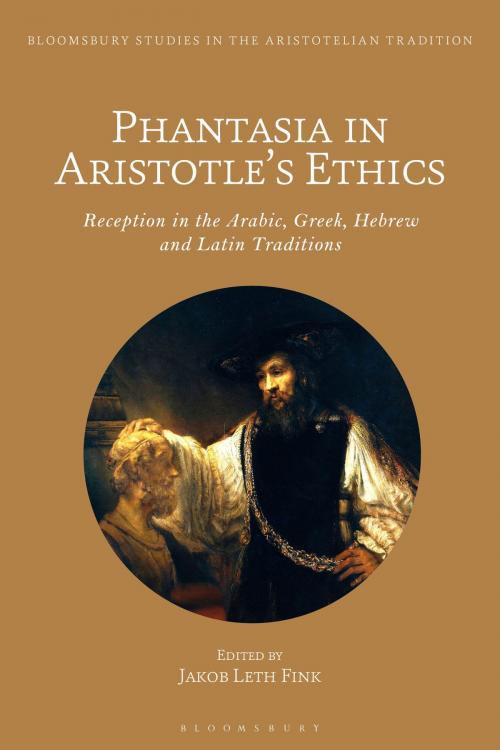Phantasia in Aristotle's Ethics
Reception in the Arabic, Greek, Hebrew and Latin Traditions
Nonfiction, Religion & Spirituality, Philosophy, History, Criticism, & Surveys, Ancient| Author: | ISBN: | 9781350028012 | |
| Publisher: | Bloomsbury Publishing | Publication: | December 27, 2018 |
| Imprint: | Bloomsbury Academic | Language: | English |
| Author: | |
| ISBN: | 9781350028012 |
| Publisher: | Bloomsbury Publishing |
| Publication: | December 27, 2018 |
| Imprint: | Bloomsbury Academic |
| Language: | English |
In the Nicomachean Ethics, Aristotle suggests that a moral principle 'does not immediately appear to the man who has been corrupted by pleasure or pain'. Phantasia in Aristotle's Ethics investigates his claim and its reception in ancient and medieval Aristotelian traditions, including Arabic, Greek, Hebrew and Latin.
While contemporary commentators on the Ethics have overlooked Aristotle's remark, his ancient and medieval interpreters made substantial contributions towards a clarification of the claim's meaning and relevance. Even when the hazards of transmission have left no explicit comments on this particular passage, as is the case in the Arabic tradition, medieval responders still offer valuable interpretations of phantasia (appearance) and its role in ethical deliberation and action. This volume casts light on these readings, showing how the distant voices from the medieval Arabic, Greek, Hebrew and Latin Aristotelian traditions still contribute to contemporary debate concerning phantasia, motivation and deliberation in Aristotle's Ethics.
In the Nicomachean Ethics, Aristotle suggests that a moral principle 'does not immediately appear to the man who has been corrupted by pleasure or pain'. Phantasia in Aristotle's Ethics investigates his claim and its reception in ancient and medieval Aristotelian traditions, including Arabic, Greek, Hebrew and Latin.
While contemporary commentators on the Ethics have overlooked Aristotle's remark, his ancient and medieval interpreters made substantial contributions towards a clarification of the claim's meaning and relevance. Even when the hazards of transmission have left no explicit comments on this particular passage, as is the case in the Arabic tradition, medieval responders still offer valuable interpretations of phantasia (appearance) and its role in ethical deliberation and action. This volume casts light on these readings, showing how the distant voices from the medieval Arabic, Greek, Hebrew and Latin Aristotelian traditions still contribute to contemporary debate concerning phantasia, motivation and deliberation in Aristotle's Ethics.















